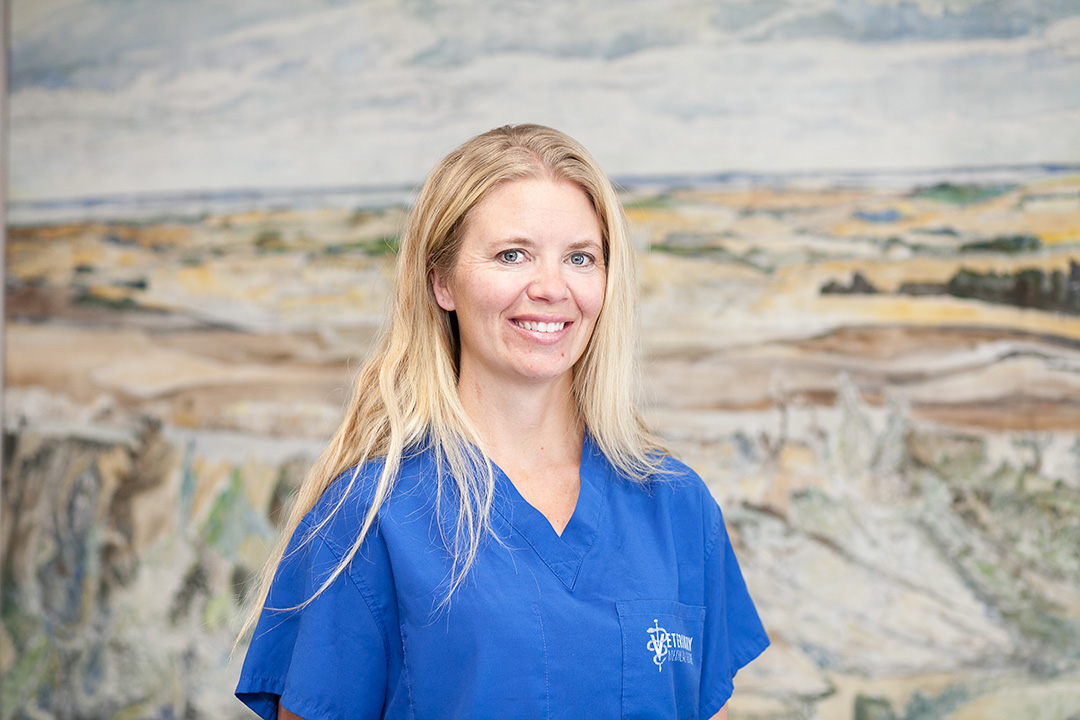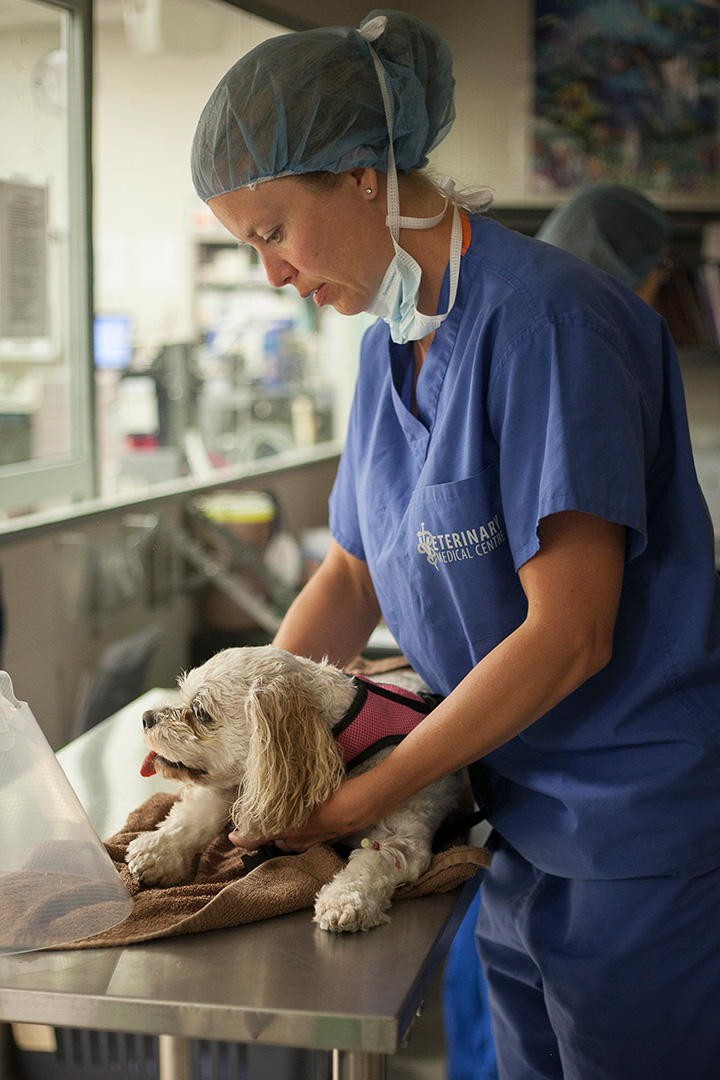
‘Technologist of the Year’ award goes to a team player in animal health care
As manager of health services in a busy veterinary teaching hospital, Lindsey Fenez is used to covering a lot of ground during her workdays at the Western College of Veterinary Medicine (WCVM).
By Tyler SchroederShe oversees the crucial role that more than 60 registered veterinary technologists (RVTs) provide in hands-on patient care at the college’s Veterinary Medical Centre (VMC). And when members of her team talk about their work, Fenez can relate — she has more than 20 years of experience working as an RVT.
“We have a huge facility and a large team that is broken up into many different specialties. But we are one big team, and we all have the same goal of giving patients the best possible care,” says Fenez.
This fall, Fenez’s dedication to her profession earned her the 2024 Technologist of the Year award from the Saskatchewan Veterinary Medical Association (SVMA). This annual honour recognizes an outstanding RVT who has made significant contributions to animal health.
Nominated for the award by her WCVM colleagues, Fenez is described as a passionate leader with an ability to undertake a range of supportive roles in the education, mentorship and supervision of RVTs at the WCVM.
“I was very shocked when I found out that I won the award. It’s such a huge accomplishment for my career and I’m honoured to be nominated,” says Fenez, who accepted the award during the SVMA’s annual conference on Sept. 14.

Fenez’s dream of becoming a veterinary professional began at a young age. She grew up around small and large animals on her family’s farm near Pennant, Sask., and as a high school student, she regularly volunteered at veterinary clinics. After completing the two-year veterinary technology diploma program at Lakeland College in Vermillion, Alta., Fenez volunteered at the Greater Vancouver Zoo and worked in various small animal and specialty practices across Alberta and B.C. before accepting an RVT job at the WCVM in 2007.
Fenez says her experiences working alongside other clinical team members gave her a unique perspective on understanding the needs of others.
“The profession is stressful when you’re dealing with sick and injured animals all the time. From what I was seeing and hearing from other RVTs, I knew that there was a need for a support system. I could understand their needs from experience, and I wanted to make sure that their voices were heard,” explains Fenez.
In 2019, Fenez accepted her management job at the VMC — a role that involves directly supporting RVTs who work in veterinary clinical services such as oncology, ophthalmology, dentistry, emergency and critical care, dermatology, surgery, medicine, reproduction and anesthesia.

